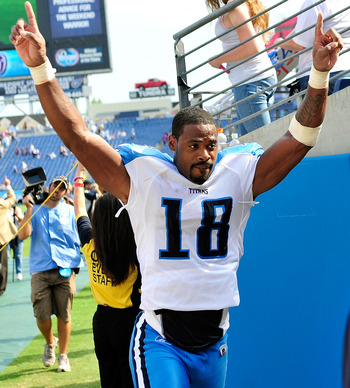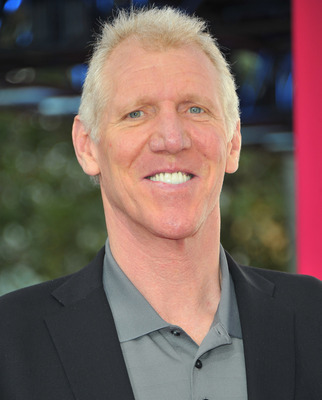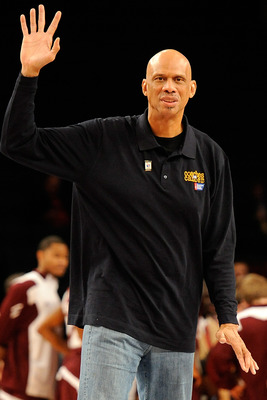
10.) Kenny Brit a receiver for the Tennessee titans, this guy is way to clean cut. Most definitely doesn't look like he smokes bud. It is said to be that he hasn't had very many run in with the cops but once he was stopped and searched and the police for weed in his possession. Can't give the clean cut guy the benefit of the doubt

9.) Carmelo Anthony doesn't surprise me, in the picture here he almost looks stoned. The weed smoking explains why at times he stays at the other end of the court trying to catch his breath. Get your smoke on melo, your stats make up for it.

8.) Randy Moss's lips are blacker then Whoopi Goldberg's of course he smokes weed. The weed doesn't effect his spend nor his hands. Explains some of his instability with being able to choose a team. He may just be looking to find which state he can play ball in with the best Mary Jane.

7.) Bill Walton, I don't even know what to say about Bill. I think he had to smoke in order to have something to do with his money cause he wasn't snazzy enough to get a woman. The guy is a monster!

6.) Mike Vick has had his issues, back and forth to court dealing with all of the scrutiny. Vick had to smoke to keep from stressing himself out.

5.) Kareem Abdul-Jabbar smokes bud because he is prescribe medical marijuana and so is everyone else that likes weed in California. Supposedly he has had chronic migraines in the past, I think the migraines only came when he had no weed to smoke on the road.

4.) Michael Phelps is a well known pot smoker, when he won those medals and society found out his secret everyone disliked him, but when the Olympics came back around he regained his fans.

3.) Santonio Holmes in 08 he missed the season opener for possession of weed, he is largely known to be a weed smoker and he is proud of it. that big contract allowed him to get the best of the best product.

2.) Tim Lincecum, knowing nothing about him or his career. The hair explains it all, total hippie and its all good the baseball salary will keep Lincecum with a fine supply.

1.) Ricky Williams is one confused guy, had a bang out season with the dolphin then decides he is going to Canada to play football so he can enjoy marijuana. One must respect his wishes because it wasn't about the money only. He had a joy and a true love for weed, but the weed may have been a cause to his issues outside of football and a effect to his performance when he returned to the NFL.

1.) Ricky Williams is one confused guy, had a bang out season with the dolphin then decides he is going to Canada to play football so he can enjoy marijuana. One must respect his wishes because it wasn't about the money only. He had a joy and a true love for weed, but the weed may have been a cause to his issues outside of football and a effect to his performance when he returned to the NFL.
Lee, Amber 2012 Bleacher Report "Top 25 Athletes Who Smoke Pot"
http://bleacherreport.com/articles/1152611-25-elite-athletes-who-also-smoke-pot/page/26
http://bleacherreport.com/articles/1152611-25-elite-athletes-who-also-smoke-pot/page/26







